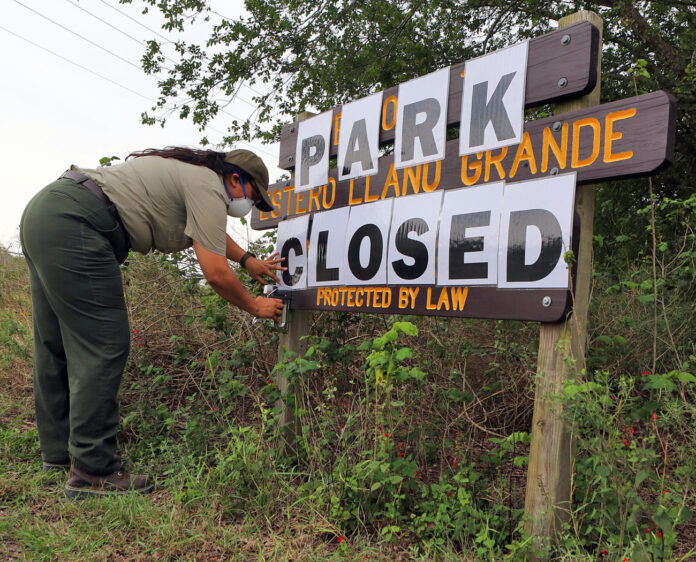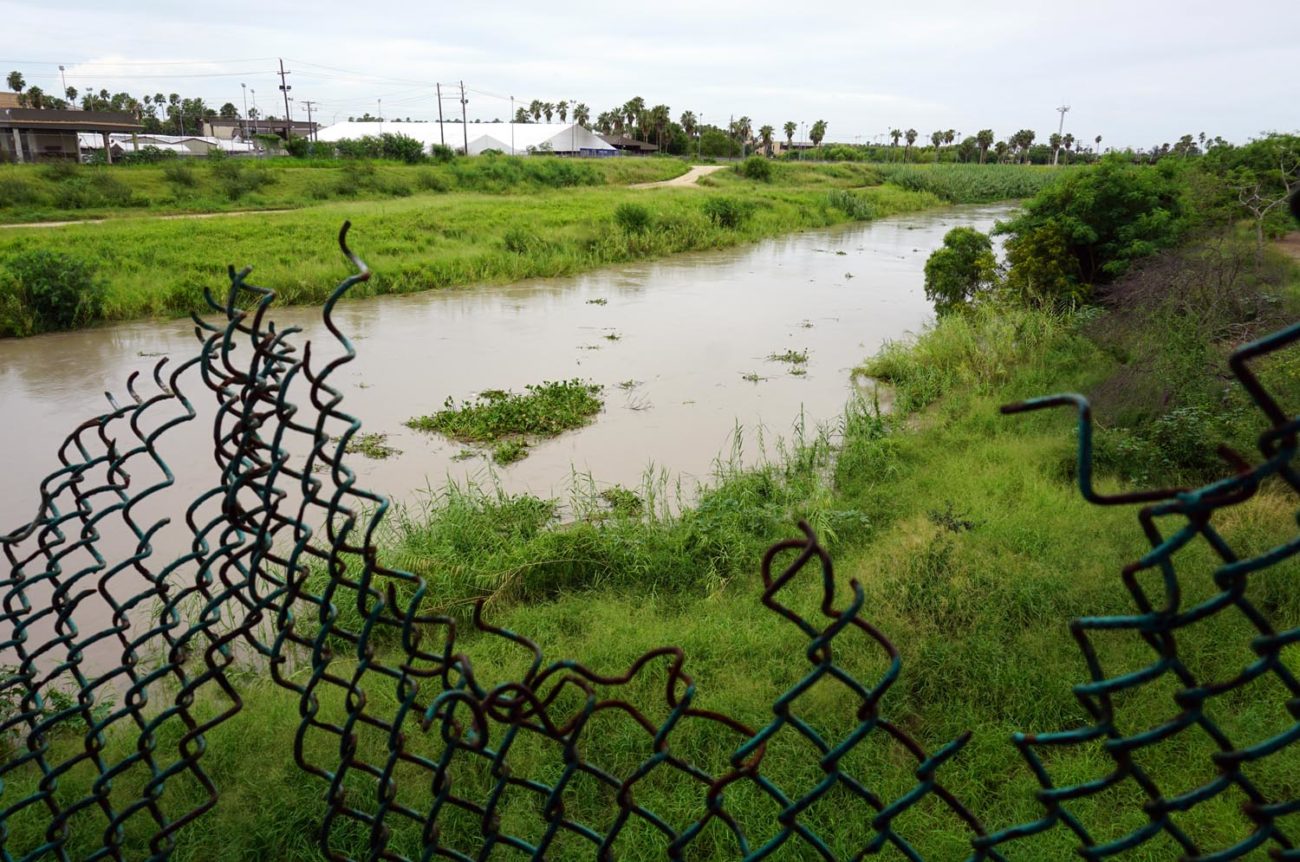By Dina Arévalo and Rick Kelley
HARLINGEN — Texas state parks, among the last public venues remaining open during the coronavirus pandemic, shut down effective Wednesday, officials say.

At the direction of Gov. Greg Abbott, Texas State Parks shuttered at the close of business Tuesday “in order to maintain the safest environment for visitors, volunteers and staff,” the Texas Parks and Wildlife Department said in a statement.
Here in the Rio Grande Valley, that means Resaca de la Palma State Park in Brownsville, Estero Llano Grande State Park in Weslaco, Bentsen-Rio Grande Valley State Park in Mission and Falcon State Park have all gone dark.
No reopening date has been set, TPWD officials said.
“Given the myriad of challenges and heightened risks of operating the parks at this time, we believe this is the best course of action right now in order to meet the health and safety expectations the state has set out for the citizens of Texas,” said Carter Smith, TPWD executive director. “All state parks will remain temporarily closed until public health and safety conditions improve. During the closure, staff will continue to steward and care for the parks to ensure they can be immediately reopened to visitors at the appropriate time.”
Despite the coronavirus lockdowns, or maybe because of them, state parks were proving to be a refuge for many Texans with 740,000 of them visiting state parks as day and overnight visitors in March.
“TPWD has reached a point where public safety considerations of those in the parks, and in the surrounding communities, must take precedence over continued operations,” the agency said in a statement.
“Difficulty in ensuring compliance with social distancing, problems in maintaining adequate supplies and keeping park facilities sufficiently sanitized are only a few of the challenges encountered by state park staff,” the news release read.

The closures come amid the height of the spring bird and butterfly migration, which brings myriad birdwatchers to the Valley from across the country. They also come at a time of year when parks statewide typically see their highest visitation numbers, according to a TPWD spokesperson.
Throughout March, local government entities began to issue shelter-in-place orders in an attempt to reduce the spread of the novel coronavirus known as COVID-19. While local leaders continued to recommend residents venture outdoors for exercise, some outdoor spaces elsewhere in the state soon became overcrowded by people with little other recreational recourse. Though official numbers will not be available until later this month, TPWD officials say such overcrowding did not appear to be a problem at the Valley’s state parks.

“Early indications appear as though we will have a decline in visitation due to efforts to manage crowds,” a spokesperson said in a statement late Wednesday.
TPWD officials have not said how long the park closures will continue; however, during a news conference last week, the governor announced an extension of his shelter-at-home orders through April 30.
Should the park closures extend for the same period of time, local parks could stand to lose as much as $72,000 — the amount of revenue the four parks generated from entrance fees, park store sales and overnight camping fees in April 2019, according to figures provided by the department.
It remains unclear how prolonged closures will affect the park system, which saw massive reductions in funding during the 2019 state legislative session. According to a summary of legislative budget estimates published by the Texas House of Representatives last January, prior to the start of the legislative session, lawmakers planned to slash park funding by 22% — nearly $189 million.

But there remains some positive news. In November, Texas voters overwhelmingly approved the passage of Proposition 5, which codified into the state constitution a funding stream that lawmakers had approved nearly 30 years earlier.
In 1993, lawmakers agreed to allocate revenues from the sporting goods sales tax to help fund TPWD and the Texas State Historical Commission. However, since then, the parks system has never received the full allocation it was entitled to receive.
With the revenue stream now guaranteed by Prop 5, a host of infrastructure and maintenance projects will continue forward, even as the parks remain closed. “Construction projects at state parks are currently continuing on schedule. We are working with the contractors at each of our sites to ensure they can continue these projects safely,” the spokesperson said.
And though residents can no longer visit their favorite state park in person, they can still turn to their parks for educational opportunities via virtual tours and other virtual activities. “For example, the Texas Outdoor Family program will be hosting virtual workshops throughout April leading up to a family ‘camp-in’ May 2,” the spokesperson said.

The program will offer families ideas they can explore at home, such as backyard camping, nature photography, storytelling, Dutch oven cooking and camping snacks, and more. More information can be found on the Texas Outdoor Family Texas Parks and Wildlife Facebook page.
As for folks who reserved camping spots at local parks, TPWD is attempting to contact people who have made overnight reservations and already paid or placed a deposit on them for reimbursement.
Group and facility reservations have been cancelled until April 30. Cancelled reservations will not be charged normal administrative fees.
Day passes purchased through the reservation system, not associated with the Texas State Parks Pass, will also be refunded without penalties.








